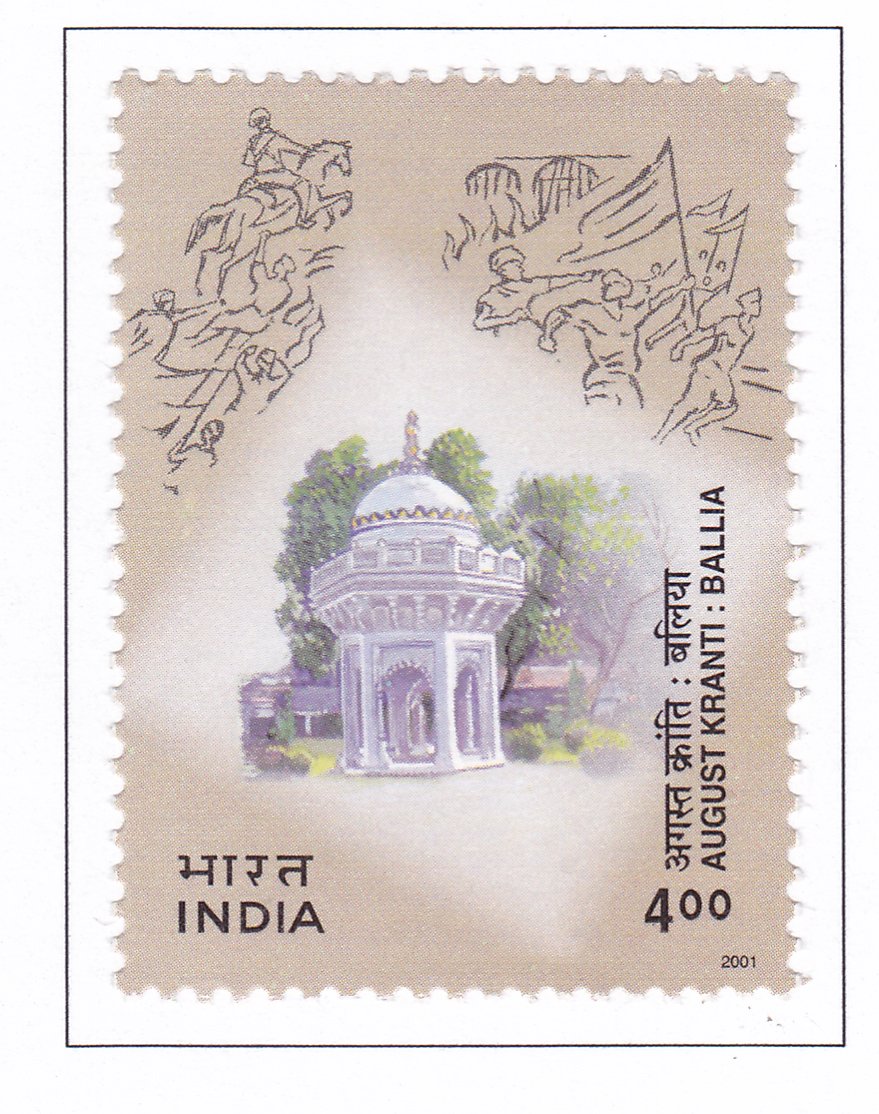August Revolution, Ballia – 60th Anniversary

Technical Data
| Date of Issue | August 19, 2001 |
|---|---|
| Denomination | Rs. 4 |
| Quantity | 400,000 |
| Perforation | comb 13 |
| Printer | Calcutta Security Printers Ltd |
| Watermark | No Watermark |
| Colors | Multicolor |
| Catalog Codes |
Michel IN 1848 Stamp Number IN 1907 Yvert et Tellier IN 1614 Stanley Gibbons IN 2014 |
| Themes | Anniversaries and Jubilees | Monuments | Revolutions |
Table of Contents
August Revolution, Ballia
The August Kranti, or August Revolution, is a significant episode in the Quit India Movement of 1942, which marked a crucial phase in India’s struggle for independence.
Background:
- Quit India Resolution: On August 8, 1942, during the Bombay session of the Indian National Congress, Mahatma Gandhi proposed the Quit India Resolution. This resolution called for an immediate end to British rule in India and was accompanied by the slogan “Do or Die.” It aimed to mobilize the Indian masses for a mass struggle against colonial rule.
British Reaction:
- Swift Crackdown: In response to the resolution, the British government acted swiftly. The key leaders of the Indian National Congress, including Gandhi, were arrested, and the Congress Party was declared illegal. This repression aimed to stifle the planned mass uprising and curb any form of organized resistance.
Popular Revolts:
- Spontaneous Uprisings: Despite the crackdown, the Indian public reacted with widespread unrest and rebellion. The slogan “British Quit India” resonated deeply with the masses, leading to numerous spontaneous revolts and protests throughout the country. These uprisings were characterized by their widespread nature and the fervent demand for British withdrawal.
August Kranti in Ballia:
- Significance: Among the various uprisings, the August Kranti in Ballia, Uttar Pradesh, stands out. It was one of the most inspiring and emblematic examples of the Quit India Movement’s impact. The revolt in Ballia was notable for its intense local leadership and the mobilization of people from various walks of life against British authorities.
Legacy:
- Impact on Independence Movement: The August Kranti and other similar uprisings underscored the widespread desire for independence and the willingness of ordinary Indians to challenge colonial rule, even in the face of severe repression. These events played a crucial role in demonstrating the strength and determination of the Indian independence movement.
The August Revolution of 1942 is remembered as a pivotal moment in India’s struggle for freedom, highlighting the nation’s collective resolve to end British colonial rule and achieve independence.
